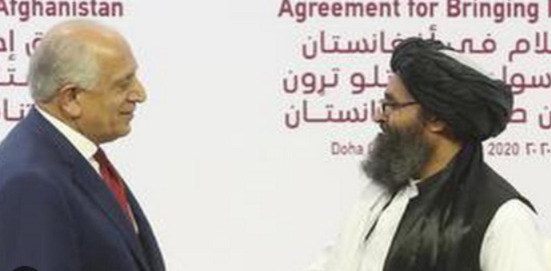A coalition of Republican members in the U.S. House of Representatives is preparing a legislative initiative aimed at suspending financial aid to Afghanistan.
The draft bill, reported by Fox News, reflects growing concerns about the Taliban’s alleged exploitation of these funds, with implications for U.S. foreign policy and humanitarian efforts.
The proposal, unveiled by Fox News on Monday, September 23, is part of a broader Republican effort to scrutinize the U.S. government’s approach to Afghanistan following the Biden administration’s withdrawal in 2021. Representative Josh Brecheen, a vocal critic of the current administration’s Afghanistan strategy, emphasised the need to reassess U.S. aid. “The Biden-Harris administration’s disastrous withdrawal has plunged the country back under Taliban rule, and now it turns out that our taxpayer dollars are being used to the benefit of the Taliban,” Brecheen told Fox News.
He further stated, “With this bill, we want to ensure that no more of our taxes are irresponsibly used in Taliban-controlled Afghanistan.”
Since the Taliban regained control, the U.S. has channelled at least $2.9 billion in aid to Afghanistan, primarily through United Nations programmes. However, allegations have surfaced, supported by Afghan activists and Republican lawmakers, that elements of this aid may be indirectly supporting the Taliban regime. These claims assert that the Taliban has established control over some aid organisations and imposed taxes on American institutions operating in the country.
If passed, the bill would prohibit U.S. federal agencies from delivering direct financial assistance to Afghanistan or through the United Nations, effectively ending current aid practices.
The proposed legislation comes as global actors debate the humanitarian impact of cutting funds. Rosa Otunbayeva, the U.N. Secretary-General’s special representative to Afghanistan, in her most recent address to the U.N. Security Council, underscored the essential role that international financial aid has played in preventing a total collapse of Afghanistan’s economy. “Global financial aid has injected liquidity into the local economy, which has largely allowed the private sector to continue functioning and prevented a financial collapse in the country,” Otunbayeva reported.
The new bill follows a previous measure passed by the U.S. House of Representatives in June, which directed the State Department to investigate nations aiding the Taliban and assess how the extremist group may be benefiting from international assistance. However, this legislation did not include provisions to cease all aid to Afghanistan.
The debate underscores the complexity of balancing humanitarian needs with concerns over enabling extremist regimes. As Afghanistan continues to grapple with the compounded effects of climate change, political instability, and economic hardship, questions persist over how to ensure aid reaches those most in need without further empowering the Taliban.
The international community faces an intricate challenge in managing humanitarian support while safeguarding against potential exploitation by the Taliban, as millions of Afghans remain at risk amidst one of the world’s most protracted crises.















